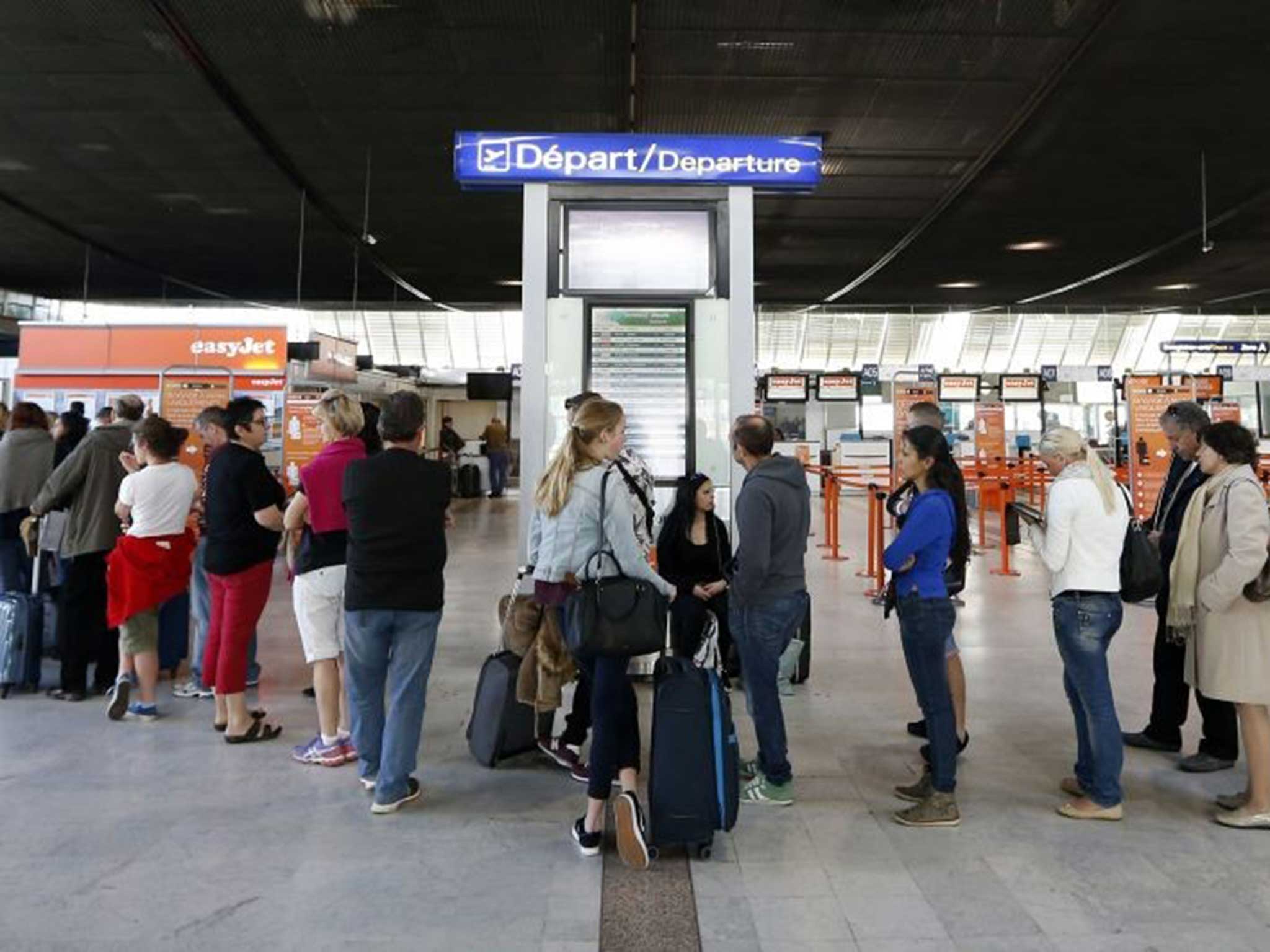French air-traffic strike: Seven more days of strikes planned
Members of the SNCTA union are striking in protest against proposals to raise their retirement age from 57 to 59, and moves to rationalise European airspace

After a 48-hour stoppage that left thousands of British holidaymakers facing long and frustrating journeys back from their Easter holidays, French air-traffic controllers plan seven more days of strikes.
France has the busiest airspace in Europe. Members of the SNCTA union are striking in protest against proposals to raise their retirement age from 57 to 59, and moves to rationalise European airspace.
Airlines are making contingency plans for the next stoppage, which is set to begin on 16 April. Negotiations will resume on 13 April. Unless an agreement is reached with the French government, air-traffic controllers will stop work from 16-18 April and from 29 April-2 May.
If the pattern of the last strike is repeated, at noon on Wednesday the French aviation authority will instruct airlines to cancel a specified proportion of flights the following day. The carriers will cull departures and inform affected passengers.
Many travellers booked on the proposed strike dates are frustrated that airlines will not let them transfer flights without penalty to days unaffected by industrial action. But after collectively incurring losses totalling an estimated £50m, Europe’s airlines are loathe to forego even more potential revenue.
A spokesperson for easyJet said: “We do not cancel flights that are scheduled to fly over France in advance as we do not know which, or how many, French air traffic controllers will be at work. Therefore we cannot predict with any level of accuracy how many flights will still be able to overfly France.”
As the first strike ended at 5am onRight Friday, travellers were straggling home. Two Vueling jets touched down at Gatwick from Barcelona 12 hours late, with outbound passengers facing corresponding delays. British Airways cancelled flights from Heathrow to Dublin and Munich due to crew issues following the strike.
Many travellers grounded in Paris and Nice returned by rail, but those further afield face days of waiting before seats become available.
Most of the “hotspots” with significant numbers of passengers grounded are in Spain rather than France, particularly in Barcelona, Alicante, Malaga, Mallorca, Tenerife and Gran Canaria. Backlogs of holidaymakers have also built up in Marrakech and Faro.
The scale of the problems facing stranded passengers was demonstrated when easyJet flights from Faro and Alicante to Bristol due in early on the morning of 10 April were cancelled. On the 13 alternative flights up to midnight on 13 April, with more than 2,000 seats in total, only six places were empty.
Jill Denslow contacted The Independent from Alicante airport, saying she had been told her flight was cancelled only 90 minutes before departure: “We had to wait until 4am in Alicante airport to be given the next available flight on 14 April.”
Gill Lucas, easyJet’s disruption manager, said in a video message: “We’re set for a very, very busy weekend - people travelling back from Easter holidays, things like that - so we won’t be able to put on any additional flights”.
Some larger aircraft equipped for 180 passengers are being deployed to key airports, giving 24 extra seats.
Subscribe to Independent Premium to bookmark this article
Want to bookmark your favourite articles and stories to read or reference later? Start your Independent Premium subscription today.

Join our commenting forum
Join thought-provoking conversations, follow other Independent readers and see their replies